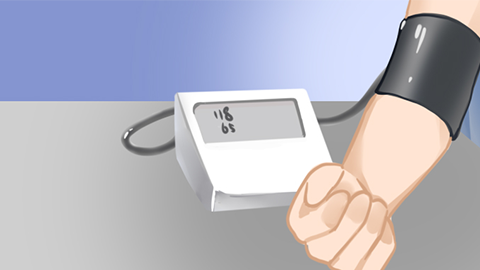Is medication required for a blood pressure of 100-150 at 40 years old?
Generally, whether a blood pressure reading of 100–150 mmHg at 40 years of age requires medication mainly depends on the specific situation. If the elevated blood pressure is transient, it can usually be managed through lifestyle modifications. However, if the high blood pressure persists long-term, medication may be necessary. Detailed analysis is as follows:

A blood pressure level of 100–150 mmHg already exceeds the normal range, which is defined as a systolic pressure of 90–139 mmHg and a diastolic pressure of 60–89 mmHg. This falls within the category of hypertension. Prolonged elevation at this level can damage vital organs such as the heart, brain, kidneys, and eyes, and increases the risk of cardiovascular and cerebrovascular diseases such as coronary heart disease and stroke. Therefore, medication is needed to control blood pressure.
If elevated blood pressure persists long-term and is accompanied by symptoms such as dizziness, headache, or palpitations, it may indicate pathologically-induced hypertension. In such cases, lifestyle adjustments alone are often insufficient to achieve target blood pressure levels. At this point, drug treatment under a physician's guidance combined with lifestyle interventions should be implemented for comprehensive blood pressure control.
It is recommended to learn stress management techniques in daily life, such as meditation, deep breathing exercises, and yoga, which can help stabilize blood pressure.
References
[1] Tang Shangfeng, Huang Yangzhen, Pan Yangyang, et al. Service Guidelines for Integrated Primary Medical and Preventive Care for Hypertension [J/OL]. Chinese General Practice, 1–7 [2025-03-14].
[2] Zhuang Juan, Xu Yuehong. Actor-Partner Interdependence Model Analysis of Negative Emotions and Quality of Life in Elderly Patients with Grade 3 Hypertension and Their Caregivers [J]. General Nursing, 2025, 23(05): 883–887.








